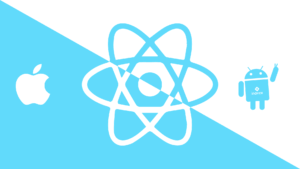Learning Android game development can be a rewarding experience for anyone with a passion for gaming and technology. With the increasing popularity of mobile gaming, the demand for skilled developers who can create engaging and entertaining games has never been higher.
However, becoming an Android game developer requires a combination of technical skills, creativity, and dedication. This guide provides a step-by-step approach to learning Android game development, starting from the basics of Java programming language and the Android operating system to the utilization of game engines and game design principles.
By following these steps, aspiring developers can enhance their skills and create compelling games for the Android platform.
Learn The Fundamentals Of Android Operating Systems
The Android operating system is the most widely used mobile operating system in the world, with over 2.5 billion active users worldwide. As an aspiring Android game developer, it is essential to have a strong understanding of the Android operating system’s fundamentals to create games that are optimized for the platform.
In this article, we will explore the fundamentals of the Android operating system that every Android game developer should know.
The Android operating system is based on the Linux kernel, an open-source operating system widely used in servers, desktops, and mobile devices. Android is designed to be open-source, which means that anyone can modify and distribute its source code. This openness has enabled the Android ecosystem to grow exponentially, with thousands of hardware manufacturers and developers building applications and games for the platform. One of the most crucial aspects of the Android operating system is the Android Runtime (ART). ART is responsible for managing the execution of Android applications and games. It uses just-in-time (JIT) compilation to improve performance and reduce memory usage.
ART also uses ahead-of-time (AOT) compilation, which compiles an application’s code before it is executed, resulting in faster app startup times. The Android operating system uses a unique application sandboxing system, which ensures that each app runs in its environment, isolated from other apps and the underlying operating system. This sandboxing system enhances security and prevents malicious apps from accessing sensitive user information.
However, it can also limit the capabilities of applications, particularly in terms of accessing system resources. Another critical aspect of the Android operating system is its support for multiple screens and resolutions. Android devices come in various sizes and resolutions, from small phones to large tablets.
Android games need to be optimized for different screen sizes and resolutions to provide the best possible user experience. Android game development Developers can use Android’s resource system to provide different resources for different devices, such as images and layouts.
Android game development also provides a powerful notification system that allows developers to send notifications to users even when their app is not running. Notifications can be used to provide users with information, such as updates or new features, or to encourage users to return to the app. Developers can use Android’s Notification API to create custom notifications that include text, images, and buttons.
Finally, the Android operating system provides a range of connectivity options, including Wi-Fi, Bluetooth, and cellular data. Developers can use these connectivity options to create games that can be played online or in multiplayer mode. Android game development also supports Near Field Communication (NFC), which allows devices to communicate with each other by simply tapping them together.
In conclusion, understanding the fundamentals of the Android operating system is essential for anyone looking to become an Android game development developer. The Android operating system’s unique features, such as the Android Runtime, application sandboxing, and notification system, provide developers with a powerful platform to build innovative and engaging games.
By leveraging these features and optimizing games for different screen sizes and resolutions, developers can create games that provide the best possible user experience on the Android platform.
Familiarize Yourself With Android Studio
Android Studio is the official Integrated Development Environment (IDE) for Android app and game development. It is a powerful tool that provides developers with everything they need to build and test Android applications and games.
In this article, we will discuss the key features and functionalities of Android Studio that every Android game developer should be familiar with.
1. User Interface.
Android Studio has a user-friendly interface that allows developers to work efficiently. The IDE provides several panels, including a project explorer, code editor, and Android emulator, which can be arranged to suit individual preferences.
2. Code Editor.
Android Studio comes with a powerful code editor that supports several programming languages, including Java and Kotlin. The code editor provides several useful features, such as syntax highlighting, code completion, and refactoring tools.
3. Emulator.
Android Studio includes an emulator that allows developers to test their games on a virtual Android device. The emulator provides several configurations, such as screen size, resolution, and API level, allowing developers to test their games on different devices.
4. Layout Editor.
The Layout Editor is a visual tool that allows developers to create user interfaces for their games. It provides a drag-and-drop interface for adding and arranging UI components, such as buttons and text fields, and supports several screen sizes and resolutions.
5. Gradle Build System.
Android Studio uses the Gradle Build System to manage project dependencies and build APKs. The Gradle Build System is highly customizable and allows developers to define build variants, flavors, and build types, among other things.
6. Debugging Tools.
Android Studio provides several debugging tools that allow developers to identify and fix bugs in their games. These tools include the Debugger, which allows developers to step through their code and examine variables, and the Profiler, which provides real-time CPU, memory, and network usage information.
7. Version Control Integration.
Android Studio provides seamless integration with version control systems, such as Git and SVN. This integration allows developers to manage their code repositories directly from within Android Studio.
8. App Signing.
Android Studio includes a tool for signing APKs, which is necessary for distributing apps on the Google Play Store. The tool generates a private key and a corresponding public key, which are used to sign and verify the APK.
9. Templates and Wizards.
Android Studio provides several templates and wizards that simplify the process of creating new projects, activities, and other components. These templates and wizards can save developers a lot of time and effort, particularly when starting new projects.
In conclusion, Android Studio is an essential tool for Android game development developers, providing a powerful and user-friendly IDE that simplifies the development process. Its range of features and functionalities, including the code editor, emulator, layout editor, and debugging tools, make it a must-have tool for anyone looking to create high-quality Android games.
By familiarizing themselves with Android Studio, developers can streamline their workflow and create engaging and innovative games for the Android platform.

Choose A Game Engine To Use For Development
Choosing the right game engine is a critical decision when developing an Android game. A game engine provides developers with the tools and framework necessary to create engaging and interactive games.
There are several game engines available, each with its own set of features, strengths, and weaknesses. In this article, we will discuss some of the key factors to consider when choosing a game engine for Android game development.
1. Platform Compatibility.
When choosing a game engine, it is essential to ensure that it is compatible with the Android platform. The engine should support Android-specific features such as touch input, screen resolutions, and hardware acceleration. It should also provide seamless integration with Android Studio, the official IDE for Android game development apps.
2. Programming Language.
Game engines typically support one or more programming languages, such as C++, C#, or JavaScript. Developers should choose a game engine that supports a language they are familiar with or interested in learning. Additionally, the engine should provide access to the Android Native Development Kit (NDK) if required.
3. Ease of Use.
Game engines should provide a user-friendly interface that makes it easy for developers to create and edit game assets, scripts, and animations. It should also provide features such as drag-and-drop interfaces, visual scripting tools, and a customizable user interface.
4. Graphics and Audio Capabilities.
The game engine should provide a powerful graphics rendering engine that supports advanced features such as shaders, lighting, and particle effects. Additionally, it should support high-quality audio playback and sound effects.
5. Cross-Platform Compatibility.
If developers plan to release their game on multiple platforms, they should choose a game engine that supports cross-platform Android game development. This will allow them to reuse code and assets across different platforms, reducing development time and costs.
6. Community Support.
Game engines with an active community of developers provide access to a wealth of resources, including tutorials, documentation, and support forums. Developers should choose a game engine that has a strong community to ensure that they can get help when needed.
7. Licensing and Cost.
Some game engines are open-source and free to use, while others require a license fee or a percentage of revenue. Developers should choose a game engine that fits their budget and meets their licensing requirements.
In conclusion, choosing the right game engine is crucial to the success of an Android game development project. Developers should consider factors such as platform compatibility, programming language, ease of use, graphics and audio capabilities, cross-platform compatibility, community support, and licensing and cost when selecting a game engine.
By choosing the right game engine, developers can create high-quality games that engage and entertain Android users.
Study The Game Design Principles And Mechanics
In addition to choosing the right game engine, studying game design principles and mechanics is also critical to successful Android game development. Game design principles refer to the fundamental concepts and theories that govern the creation of engaging and entertaining games, while game mechanics refer to the specific rules, actions, and interactions that make up a game.
One important game design principle is player motivation. Players need to be motivated to continue playing a game, and this can be achieved through various means, such as setting clear goals and rewards, creating a sense of challenge and progression, and providing meaningful choices and consequences.
Another essential game design principle is accessibility. Games should be accessible to a wide range of players, regardless of their skill level or previous gaming experience. This can be achieved through intuitive controls, clear instructions, and gradual difficulty progression.
When it comes to game mechanics, there are several key elements to consider. These include gameplay mechanics, such as movement, combat, and puzzle-solving, as well as progression mechanics, such as leveling up, earning achievements, and unlocking new content. Another important game mechanic is balance. Games should be balanced in terms of difficulty so that players feel challenged but not frustrated.
Additionally, games should provide a fair and enjoyable experience for all players, regardless of their play style or approach to the game.
Finally, aesthetics also play a crucial role in game design. Games should have a visually appealing and immersive environment that complements the game’s theme and mechanics. This can be achieved through high-quality graphics, engaging sound effects and music, and creative character and world design.
By studying game design principles and mechanics, Android game developers can create games that are engaging, entertaining, and accessible to a wide range of players. They can create games that motivate players to continue playing, provide a fair and enjoyable experience, and have a visually appealing and immersive environment.
Additionally, by understanding game design principles and mechanics, Android game development developers can make informed decisions when designing game assets, mechanics, and levels, resulting in a more polished and refined final product.








